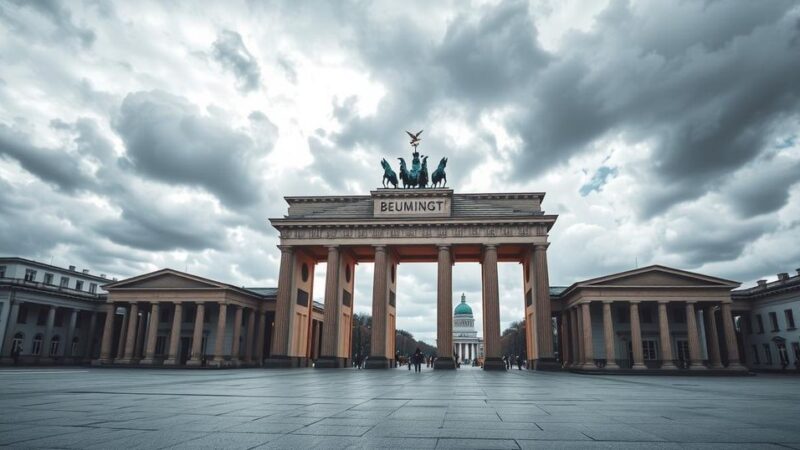The World Council of Churches urges dialogue as the means to alleviate suffering in Goma amid ongoing violence. The Goma Call for Peace demands an end to hostilities and emphasizes the need for international support. Local leaders are advocating for peace talks between regional governments to protect civilians and restore essential services.
The World Council of Churches (WCC) has called for dialogue as the primary means to alleviate suffering in and around Goma, eastern Democratic Republic of Congo. P. Pillay emphasized the WCC’s commitment to supporting dialogue between Presidents Kagame and Tshisekedi to quell the ongoing violence. The WCC aligns with the Goma Call for Peace, advocating for actions that facilitate humanitarian aid while reducing hostilities.
The Goma Call for Peace campaign urges immediate international action to ensure peace in the region, highlighting the increasing humanitarian crises and security issues. The campaign demands an unconditional cessation of hostilities, adherence to ceasefire agreements, and essential protection for civilians, along with urgent restoration of utilities in Goma.
The campaign advocates for sincere diplomatic talks between Kigali and Kinshasa, asserting that peaceful negotiations are vital to resolving the conflict that has inflicted significant suffering. It calls upon the international community to exert all possible efforts to foster peace in the area.
A petition has been initiated to support the Goma Call for Peace, championed by a Congolese youth leader, a female war survivor, and Bishop Martin Gordon of Goma. Bishop Gordon articulated, “Central to the Goma call for peace is a call for a resumption of dialogue knowing that dialogue and negotiation will be the only way to bring about lasting peace in Eastern Congo.”
Mike Mpanya, a youth activist, remarked, “This is not merely a regional issue; it is a moral imperative for all of us as Africans and as global citizens. Let us not be silent.” Favour Ange, a war survivor, emphasized the necessity of halting violence, advocating for the protection of human rights, particularly for women and children.
The appeal also received backing from Most Rev. Thabo Makgoba, Archbishop of Southern Africa, who stated the significance of unity in pursuing peace. Additionally, Most Rev. Ande Georges Titre, the Anglican Archbishop of the Congo, underscored the pressing need for immediate humanitarian aid for those affected by conflict, stressing the necessity for peace to be recognized and acted upon.
In eastern Democratic Republic of Congo, ongoing armed conflicts have led to significant humanitarian crises, affecting the well-being of civilians. The Goma Call for Peace seeks dialogue between key regional leaders to facilitate a sustainable solution. Recognizing the role of international support, the campaign emphasizes the urgent need for a collective effort to ensure peace and humanitarian assistance in the region.
The renewed call for peace in eastern Democratic Republic of Congo highlights the dire need for dialogue as a tool to end violence and suffering. The combined efforts of local leaders and the international community are crucial in addressing humanitarian needs and fostering peace. There is a moral obligation to ensure that the cries for help are heard and acted upon to create a stable future for the affected populations.
Original Source: www.oikoumene.org






